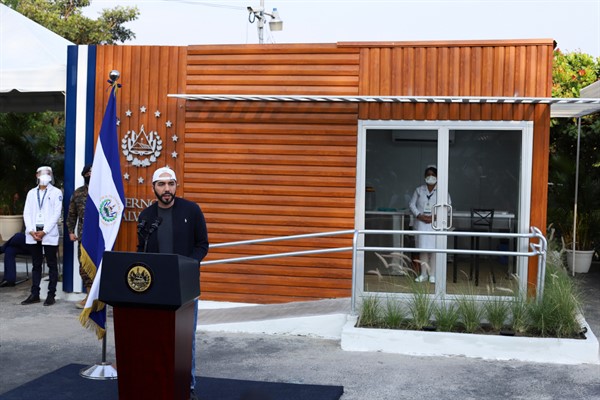One of the areas where U.S. foreign and domestic policies intersect most tangibly, as we saw over the past four years during Donald Trump’s administration, is on immigration and refugees. President Joe Biden campaigned on a promise to launch a sharply different strategy to deal with migrants and refugees, especially at the border with Mexico, but now his plans are facing new headwinds.
In a legislative election last weekend in El Salvador, President Nayib Bukele’s party, New Ideas, along with his ally the Grand Alliance for National Unity, won a landslide victory. Early results suggest that Bukele’s bloc will enjoy a parliamentary supermajority, controlling at least two-thirds of the chamber’s seats, enough to enact legislation and install just about any loyalist he chooses in positions of power.
The outcome is problematic for Biden because Bukele has already shown troubling signs of disdain for democratic norms—and strengthening democracy and the rule of law is one of the key elements of Biden’s ambitious plan to reduce immigration from Central America by addressing its root causes.

